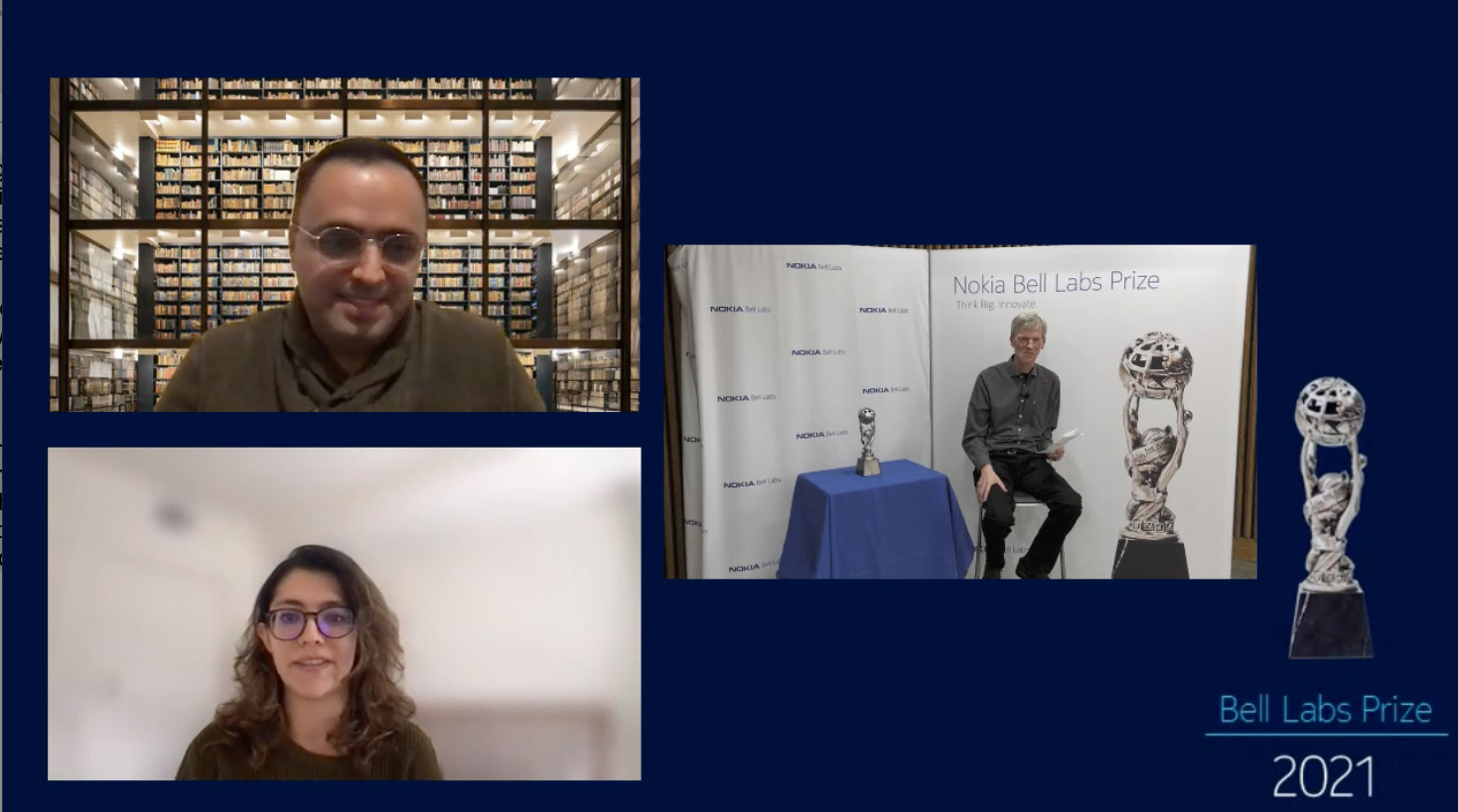Amin Karbasi wins Bell Labs Prize for Brain Mapping Technology

Prof. Amin Karbasi and Mehraveh Salehi (Ph.D. ’19, Electrical Engineering) won second place at Nokia’s Bell Labs Prize ceremony Tuesday for their work on understanding how information flows in the human brain based on different cognitive tasks. The team says their innovation makes a concrete connection between artificial intelligence and natural intelligence.
The Bell Labs Prize recognizes disruptive innovations that solve the key challenges facing humanity. Eight months ago, numerous academics from across the world applied to work with Nokia researchers to help advance their innovations. Karbasi and Salehi were one of the final six teams.

Karbasi and Salehi utilized a large-scale fMRI dataset consisting of more than 700 subjects and developed an unsupervised representation learning algorithm that provides robust, personalized brain maps unique to individuals and dynamic with tasks. The results, they say, could predict the sex, the fluid intelligence, and cognitive tasks performed by individuals based on their brain fingerprints.
Their personalized brain mapping technology could also help doctors better understand the individual differences in brain function and disease, bringing us one step closer to personalized medicine, with personalized diagnostic and treatments that are specifically designed for every single individual.
Nokia officials were impressed with the research noting that what the team has proven is an efficient method to organize data so you’re only looking at the most important parts of it. When you have the ability to limit your search you can then apply that technology to a vast treasure chest of additional applications, such as networks and communications.
Karbasi is an associate professor of electrical engineering with appointments in computer science and statistics and data science and formerly served as Salehi’s academic co-advisor with Todd Constable at Yale’s School of Medicine.